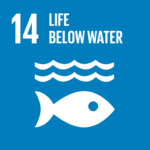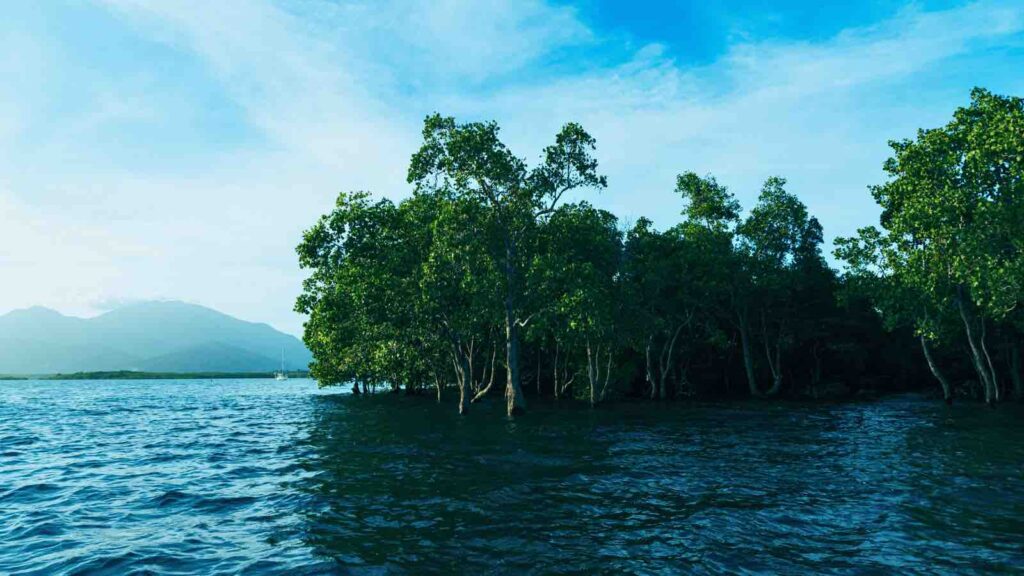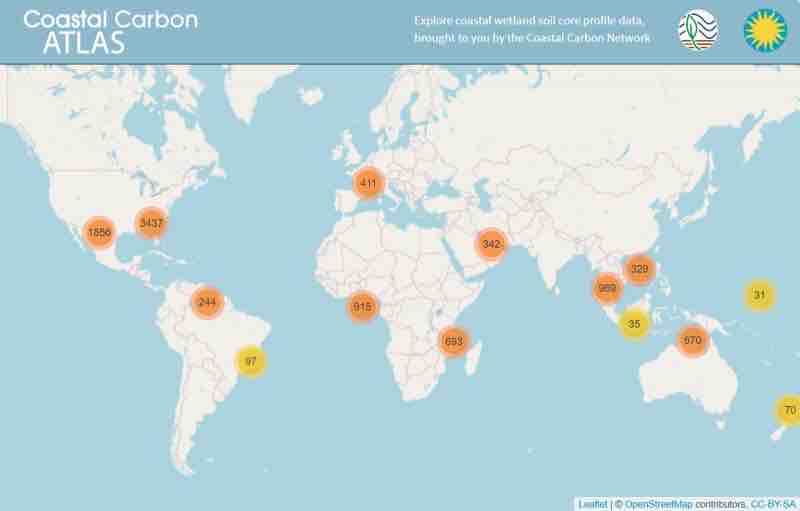The Coastal Carbon Library, a pioneering initiative by the Smithsonian Institution, spans multiple habitats, collects site characteristics, and contains several other important data.
Blue carbon habitats, crucial ecosystems in the fight against climate change, have garnered increasing attention for their role in sequestering greenhouse gases, particularly through the preservation and restoration of wetlands. Recognizing the importance of accurately measuring carbon stocks and flows in coastal soils, the Coastal Carbon Network, part of the Smithsonian Institution, has launched a groundbreaking resource: the Coastal Carbon Library.
RELEVANT SUSTAINABLE GOALS


The Coastal Carbon Library
This expansive database compiles data from various studies on carbon storage across different coastal habitats, enhancing our understanding of carbon dynamics. Alongside it, the Coastal Carbon Atlas offers an interactive platform for visualizing and analyzing this wealth of data. The initiative aims to fill a significant gap by providing a centralized, standardized repository for detailed data essential for carbon stock estimation and flux analysis, previously scattered across numerous individual studies.
Version 1.0.0 of the Coastal Carbon Library boasts a collection of 6,723 soil profiles from key blue carbon systems like marshes, mangroves, tidal freshwater forests, and seagrasses. The database not only supports carbon stock assessments but also aids in estimating carbon burial rates and modeling dynamic soil formation, with a notable differentiation in organic matter density across habitats.
As efforts continue to expand the database, particularly to include more data from outside the U.S. and on underrepresented habitats such as mangroves and seagrasses, the Coastal Carbon Library and Atlas exemplify a F.A.I.R. (Findable, Accessible, Interoperable, and Reusable) approach to data management. This grassroots initiative underscores the potential of collaborative data sharing to inform policy and decision-making in the realm of climate action and coastal resilience.
Lead image courtesy of Arts Leaven From Studio Philippines
You may also be interested in :
Community Involvement In Mangrove Restoration : A Study’s Call For Social Integration



